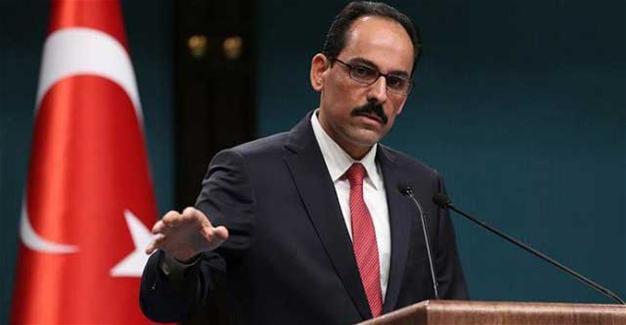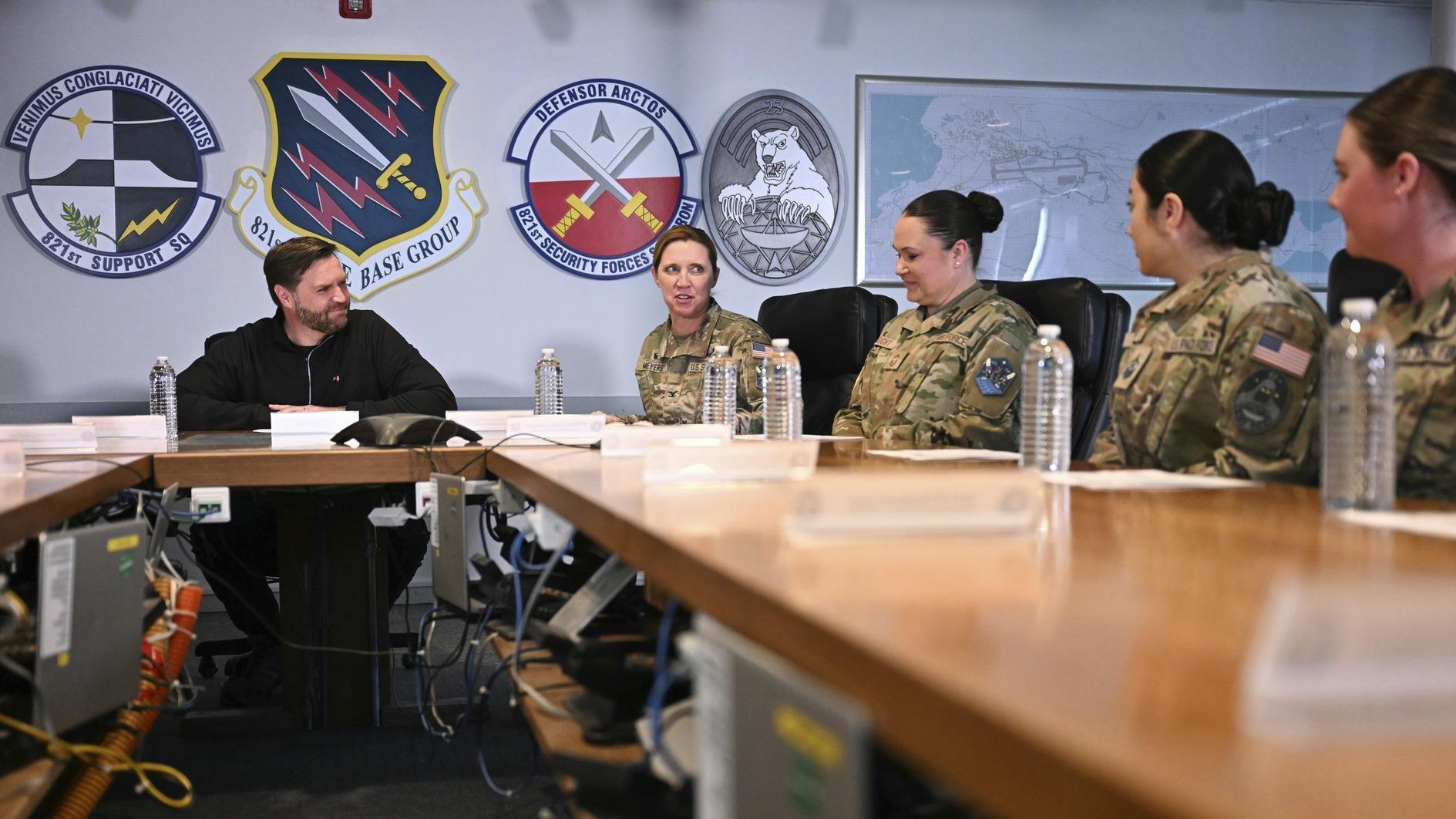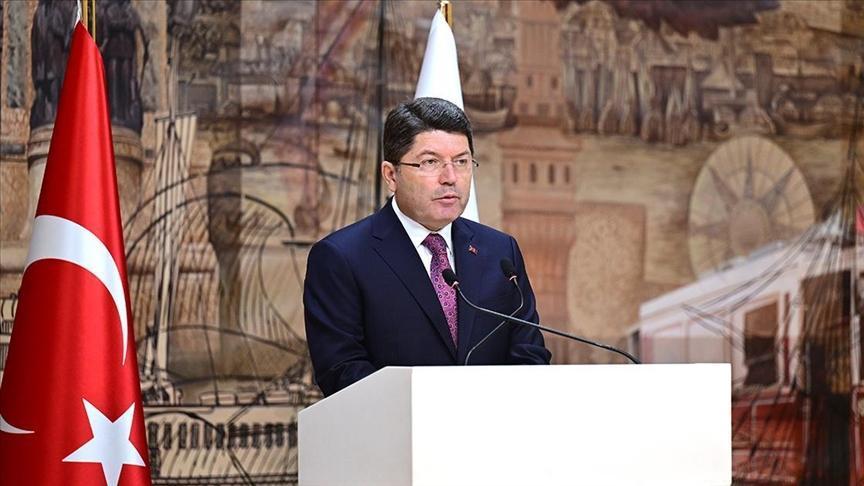Turkey has become ‘scapegoat’ for US failure in Syria: Presidential spokesperson
ANKARA
 Presidential Spokesperson İbrahim Kalın on July 31 criticized recent statements by Brett McGurk, the U.S. envoy of the anti-Islamic State of Iraq and the Levant (ISIL) coalition, which linked Turkey to terror groups in northwestern Syria.
Presidential Spokesperson İbrahim Kalın on July 31 criticized recent statements by Brett McGurk, the U.S. envoy of the anti-Islamic State of Iraq and the Levant (ISIL) coalition, which linked Turkey to terror groups in northwestern Syria. “When there is a fall in Syria, one looks for a scapegoat,” Kalın told the TVNet broadcaster.
“Whenever things go bad in Syria, Turkey comes to the forefront,” he said, recalling media reports last year accusing the Turkish authorities of allowing foreign fighters to cross the border, engaging in oil trade with ISIL territory, and treating ISIL members in Turkey.
“They could not prove any of these,” Kalın claimed.
He also underlined the importance of sharing intelligence regarding foreign fighters, noting that there was a flow of fighters from many countries including European states, Russia, Saudi Arabia and Tunisia. At times when Ankara had good intelligence cooperation with other countries it was able to stem the crossing of jihadists over the border, he said.
Speaking at a panel at the Middle East Institute in Washington, McGurk, had suggested that the city of Idlib had turned into a “safe zone for al-Qaeda terrorists on the Turkish border.”
Kalın refuted the accusation, saying “the terroristic structure in Idlib cannot be associated with Turkey.”
“Why? Because we do not control Idlib. There are Americans and the YPG [People’s Protection Units] there [around Idlib]. There are Russians and regime forces there,” he said.
Kalın added that several years ago a refugee corridor was established because of the war and Turkish institutions like the Turkish Red Crescent, non-profit organizations, and the Prime Ministry’s Disaster and Relief Agency were involved in an effort to get humanitarian aid to Idlib.
“After Aleppo’s evacuation, a population boom occurred in Idlib,” Kalın said, noting that around 1.5-2 million people are currently residing there. Some of the Syrians in Idlib travel to Turkey from time to time, but they are subject to security checks, he added.
Kalın decried McGurk’s “ill intentioned” attempt to hold Ankara responsible for an incident to which he said Turkey does not have any connection.
On July 30, in a written statement, Turkish Foreign Ministry spokesperson Hüseyin Müftüoğlu also criticized McGurk for his “provocative” statements.
“Our reaction to the statements of Brett McGurk, in which he associated Turkey with the presence of terrorist organizations in Idlib, was brought to Mr. McGurk’s attention at a high-level demarche. His statements, which can be characterized as provocative, were protested,” Müftüoğlu said.
Turkey considers the YPG, the military wing of the Democratic Union Party (PYD), to be an offshoot of the outlawed Kurdistan Workers’ Party (PKK), which is also recognized as a terrorist organization by the U.S. and the European Union.
The U.S. administration started to directly provide weapons to the YPG in the anti-ISIL campaign upon a presidential order signed by Trump in mid-May, at the expense of angering ally Turkey.
















